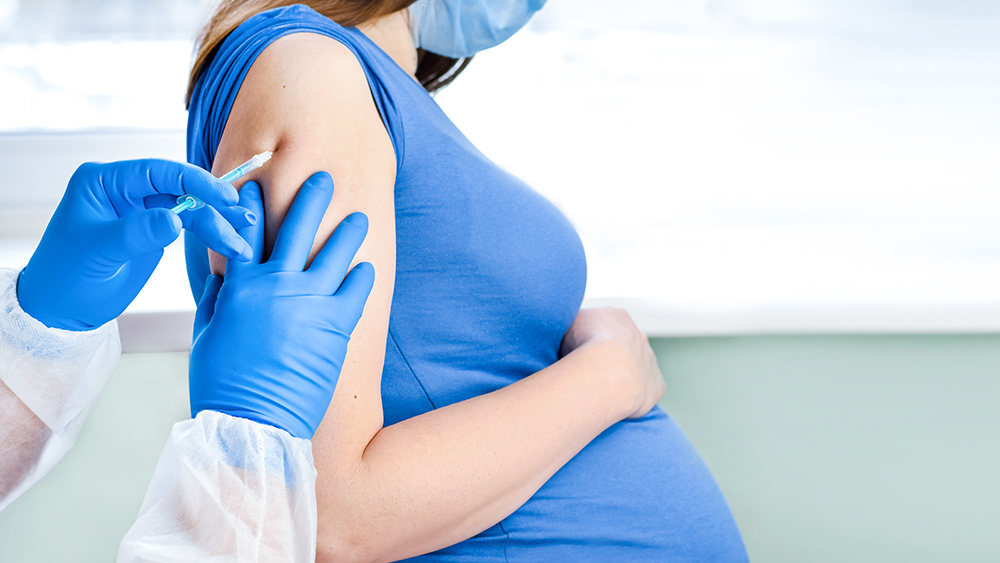Study: 75% of biosafety level 4 labs have low or medium biosecurity and biosafety levels
06/25/2021 / By Nolan Barton

Researchers from the U.S. and the U.K. found that three-quarters of the biosafety level 4 (BSL-4) facilities around the world that handle dangerous pathogens have low or medium biosecurity and biosafety levels, underlining the possibility that the coronavirus (COVID-19) pandemic originated from a lab.
The study comes as the debate on the origins of the pandemic shifted on the chances of the SARS-CoV-2, the virus that causes COVID-19, to have escaped from the Wuhan Institute of Virology (WIV) in Wuhan, China – the ground zero of the pandemic.
The WIV is one of the 59 BSL-4 labs in operation, under construction or planned around the world. These labs are spread in 23 countries. The largest concentration of BSL-4 labs is in Europe with 25. North America and Asia have 14 and 13 respectively while Australia has four and Africa three.
Study determines how many BSL-4 labs pass safety protocols
Gregory Koblentz, an associate professor of biodefense at George Mason University, and Filippa Lentzos, senior lecturer in science and international security at King’s College London, conducted the study to determine how many pass safety protocols. They noted that three-quarters of the BSL-4 labs sit in urban areas, including the WIV.
Around 60 percent of BSL-4 labs are in government-run public health institutions and the rest are either housed in universities or in government agencies involved in biodefense.
Regardless of who runs them, the researchers said, “the BSL-4 labs are used either to diagnose infections with highly lethal and transmissible pathogens, or conduct research on such pathogens to develop new medical countermeasures and diagnostics tests or to improve our scientific understanding of how these pathogens work.”
The study revealed that there’s significant room for improvement in the policies in place to ensure that the BSL-4 labs are operated safely, securely and responsibly. “Only about one-quarter of the countries with BSL-4 labs received high scores for biosafety and biosecurity – as measured by the Nuclear Threat Initiative’s Global Health Security Index,” the researchers said.
The Global Health Security Index measures whether countries have the requisite legal and institutional components of national biosafety and biosecurity oversight systems. “We categorized countries as having high, medium or low levels of biosafety and biosecurity preparedness,” the researchers said.
Based on that scoring system, the WIV got a medium ranking for biosafety and biosecurity. But it is important to note that U.S. Embassy officials issued two diplomatic cables warning about inadequate safety at the lab after a visit in 2018. According to the Washington Post, one of the cables warned that the lab’s work on bat-based coronaviruses represented the risk of a new SARS-like pandemic.
Risk of pandemic originating from lab is real
The researchers found that “the vast majority of countries with BSL-4 labs do not conduct oversight on the type of gain-of-function research that has been a central feature in the debate on COVID-19’s origin.”
“Even if you do not believe that the current pandemic was the result of a gain-of-function experiment gone wrong, it doesn’t mean that this type of work couldn’t be the source of the next pandemic,” the researchers said. (Related: Gain-of-function expert Dr. Peter Daszak bullied top scientists into covering up laboratory origins of SARS-CoV-2.)
According to a database maintained by the American Biosafety Association (ABSA), since 2003 there have been four incidents of researchers being exposed, though not necessarily infected, while working in a BSL-4 lab. Meaning, the risk of future pandemics originating from lab research with dangerous pathogens is real.
All the BSL-4 labs in the U.S. are ranked high in both biosecurity and biosafety while all three in Africa are low.
Only 40 percent of nations with BSL-4 labs are members of the International Experts Group of Biosafety and Biosecurity, which is where regulators share best practices on handling dangerous pathogens. Members include the U.S., the U.K., Australia, Canada, France, Germany, Japan, Singapore and Switzerland.
Relaxed regulations could spark another pandemic
The new report has raised concerns among experts who fear relaxed controls and regulations at some locations could spark another pandemic.
“The larger the number of institutions and the larger the number of individuals with access to these dangerous agents, the greater the risk,” said Richard Ebright, a professor of chemical biology at Rutgers University. “We need to strengthen biosafety and biosecurity rules around the world.”
The researchers said countries with BSL-4 labs should have whole-of-government systems that can conduct multidisciplinary risk assessments of the proposed research for safety, security and dual-use activities, such as the gain-of-function research. They also stressed the need for the World Health Organization to develop guidelines to govern dual-use research and the handling of potential pandemic pathogens.
Follow Pandemic.news for more news and information related to the coronavirus pandemic.
Sources include:
Tagged Under: biosafety, biosecurity, biowar, coronavirus, covid-19, COVID-19 origin, dual-use research, gain-of-function, gain-of-function experiment, gain-of-function research, lab-leak theory, pandemic, pathogens, safety protocols, SARS-CoV-2, virology, Wuhan Institute of Virology
RECENT NEWS & ARTICLES
Pandemic.News is a fact-based public education website published by Pandemic News Features, LLC.
All content copyright © 2018 by Pandemic News Features, LLC.
Contact Us with Tips or Corrections
All trademarks, registered trademarks and servicemarks mentioned on this site are the property of their respective owners.





















